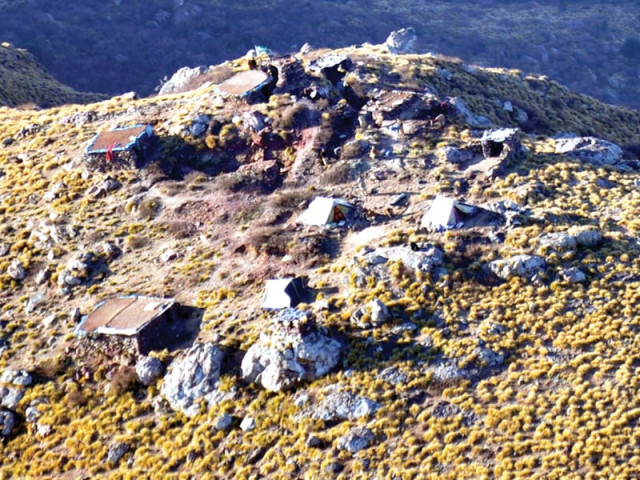Averting another episode: Pakistan urged to share border-post map
US seeks better coordination after fatal Salala check post airstrike.

US Marine Corps General James Mattis, the commander, said in a statement on Monday that the strike’s chief lesson was that “we must improve border coordination and this requires a foundational level of trust on both sides of the border.”
Mattis told the allied commander in Afghanistan, General John Allen, to take steps to prevent “friendly fire” incidents and share them with Pakistan’s military “if possible,” an apparent reference to continuing strains.
The latest US military information on repairing the damage was disclosed on the Central Command’s website along with a 30-page report of the US military’s findings on the Nov. 25-26 nighttime airstrike that deeply angered Pakistan.
The incident has derailed already uneasy Pakistan-US cooperation in the American-led fight against militants who zig-zag the border, known as the Durand Line, to destabilise the Afghan government of President Hamid Karzai.
US military investigators said American forces had failed to verify the location of Pakistani units before ordering the attack but blamed Pakistani forces for firing first. The findings were outlined by the Pentagon on Thursday. Mattis directed Allen, commander of Nato’s International Security Assistance Force, to seek full disclosure of all facilities and installations on both sides of the frontier as soon as possible.
This should include “systematic updates based on a common data base and map, and incorporating periodic reciprocal coordination visits,” he said. The US investigators said a climate of deep mutual distrust was partly to blame for the incident.
Published in The Express Tribune, December 28th, 2011.



















COMMENTS
Comments are moderated and generally will be posted if they are on-topic and not abusive.
For more information, please see our Comments FAQ